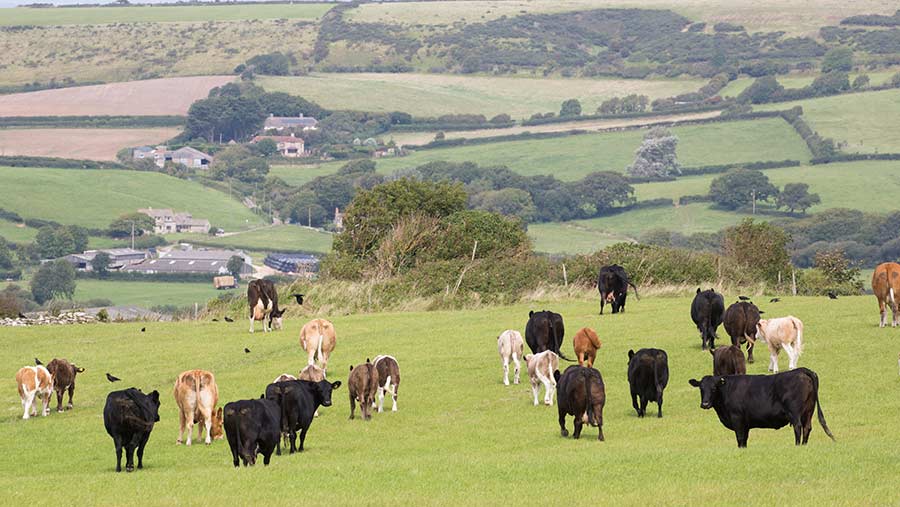Loss of BPS will cost South West economy £883m, report finds
 © Tim Scrivener
© Tim Scrivener The rural economy in the South West of England is set to lose hundreds of millions of pounds over the next five years due to the withdrawal of direct support payments for farmers, a new study has concluded.
Research published by the Countryside and Community Research Institute (CCRI) predicts that £883m will be lost from the rural economy up to 2027 across Cornwall, Devon, Dorset, the Isles of Scilly and Somerset.
The introduction of the post-Brexit Environmental Land Management (ELM) schemes will coincide with the phased removal of the Basic Payment Scheme (BPS), which provided millions of pounds in direct support to farmers and landowners while the UK was a member of the EU.
See also: Labour backs NFU calls for two-year pause to BPS cuts
Defra is introducing the first component of ELM this year, the Sustainable Farming Incentive (SFI), but the support package is expected to be much smaller overall. With other ELM schemes’ funding still in development, the wider impact on the rural economy remains uncertain.
Family farms
The South West’s rural economy, which is dependent on small, family-run farms, is particularly vulnerable to the financial impact of the transition.
With farming being a significant driver for the region’s economy, the predicted impact on the sector’s supply chains, producers, suppliers, business owners and workers is widespread.
The report, Assessing the Impact of Agricultural Transition (PDF), was funded by the Cornwall & Isles of Scilly Local Enterprise Partnership (LEP), Dorset LEP, the NFU and the Heart of the South West LEP, to shed light on the impact new payment schemes will have on farming and rural communities across the South West.
Currently, between a quarter and half of BPS money is spent on businesses supporting the farming sector, the report states.
But it warns of a significant knock-on effect for jobs in the local economy over the next five years due to a reduction of between £220m and £440m for feed merchants, machinery retailers, contractors, vets, solicitors and many others. In turn, this will reduce their own spending power in the rural economy.
Melanie Squires, NFU South West regional director, said: “The scale of reductions in available funds to businesses laid bare by this report is considerable and can’t be ignored,”
Defra’s response
Commenting on the report, Defra farm minister Victoria Prentis said: “Our new schemes are supporting the choices that individuals take for their own farms, and helping to boost their productivity and profitability. We have recently almost trebled our new Farming Equipment and Technology Fund to over £48m to support more farmers with their investment plans.
“In 2017, £1.775bn of payments were made across 85,000 farms and 10% of claimants received half of this total – 33% of farms received less than £5,000 each.
“This isn’t right and we are repurposing this money to pay farmers for the work that they do, rather than the amount of land they own. In the South West, more than 5,000 farmers are already in our Environmental Land Management schemes.”
